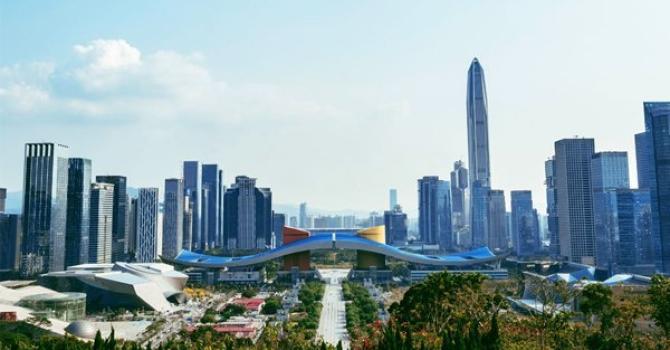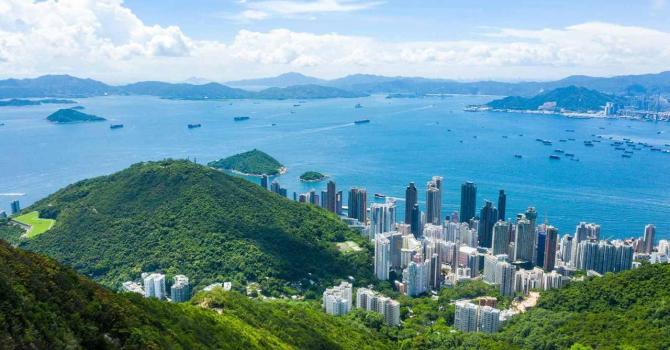Why Hong Kong needs all hands on deck to meet the climate change challenge
Hong Kong needs a whole-of-government approach in tackling climate change. Everyone in the public and private sectors has a role to play in meeting Hong Kong’s date with destiny to be carbon neutral
Turning any economy away from fossil fuels to one powered by clean energy requires long-term, sustained and aggressive policies. Decarbonisation must start with governments since only they hold the necessary policy tools to “internalise externalities” so businesses and the community have the right incentives and deterrents to favour zero-carbon options.
The national government will go all out to make the whole of the Chinese economy carbon-neutral by 2060. On the mainland, the whole governance apparatus must deliver on targets and timelines to decarbonise, as well as adopt the concept of “ecological civilisation”, the new constitutional development mandate.
Thus, there are environmental, ecological and biodiversity goals galore to meet throughout the chain of command.
Hong Kong also needs all government bureaus and departments to be involved. While the chief executive now chairs an internal steering committee on climate change – the chief secretary used to lead it – the entire ministerial team beyond the environment secretary, senior civil servants and regulators, as well as the disciplined services – including the police – must pitch in.
A few examples illustrate the need for a whole-of-government approach.
Decarbonisation around the world affects every economy. The government is keen for Hong Kong to become a strong green finance centre to raise capital for the mainland and Asia-Pacific.
This is right, but it also needs to ensure Hong Kong provides a local testing ground for all kinds of finance, and climate and sustainability innovations. It cannot avoid thinking about Hong Kong’s role in emissions trading now that China’s new emissions trading system is in place for the power sector and will be expanded to cover other sectors in the next few years.
How can Hong Kong work with Beijing to create a system for trading emissions beyond Chinese mainland? It will involve financial regulators, and the stock exchange is already staking a claim to play a role, but serious attention from the government is also needed.
Another policy shift to promote both finance and innovation can come through accommodating more solar capacity in Hong Kong.
While this will not replace the need for clean power through local generation and energy imports from the mainland, designing policies to encourage solar generation on unconventional sites by the private sector helps extend green finance. It is also a way to test innovations, to encourage members of the public to invest in such projects. Success will extend Hong Kong’s total green capabilities.
Well-developed ideas such as putting solar panels on noise barriers along highways have been proposed. Various government departments need a clear policy from the top to facilitate rather than block such ideas from the private sector because they do not fit the current mode.
The secretary for justice should advise the government on whether Hong Kong needs a climate change law. Britain passed a law in 2008 to create the world’s first legally binding commitment to cut carbon. China might also be considering some form of legislation. The justice secretary should be conversant about this topic from Hong Kong’s perspective.
The secretary of commerce and economic development’s purview includes industry. Implementing a circular economy is part of the mainland’s climate plan, aimed at reducing the use of resources in manufacturing.
Research and development in the city has a global impact. The Hong Kong Research Institute of Textile and Apparel has, for example, developed advanced recycling technologies that can help reindustrialise the local economy as well as play a vital part in a national circular economy. Relevant government officials should support such efforts to facilitate local innovation.
The secretary for innovation and technology should be all over “innovations” and “technologies” that improve Hong Kong’s capacities. Digitalisation, Big Data and AI all have a role in climate- and environment-related efforts, whether in the financial, industrial, research, services or community sectors.
The secretary for development has a special role to play. Mirroring the mainland’s decarbonisation efforts strengthens climate adaptation and resilience. Decarbonisation is required to avert a global temperature rise of above 2 degrees Celsius – or, even better, 1.5 degrees – since the Industrial Revolution. Global warming has already increased average temperatures by about 1.2 degrees.
The extreme weather across the world this year – including floods, extended heatwaves and wildfires – attests to the risks associated with climate change.
The Development Bureau deals with city planning and infrastructure. Hong Kong has a good record of preventing landslides and floods, but this is not a time to be complacent.
Moreover, the regulation of buildings falls under the secretary for development. Ensuring construction and new buildings are zero carbon, while retrofitting existing buildings to reduce energy and water use, are vital to achieving carbon neutrality for Hong Kong. The secretary must lead regulatory change.
Wildlife crimes are an offence against ecological civilisation and climate change. Hong Kong is often used as a port for wildlife trafficking, but the national government is on the march to protect wildlife and revive degraded biodiversity on a massive scale.
The new secretary for security, a former police commissioner, should make fighting these crimes a top priority. With a new police commissioner and secretary of security who commands the customs department, Hong Kong can really contribute to international efforts. This would be welcomed by all.
Everyone has a role to play in meeting Hong Kong’s date with destiny. We need all hands on deck, with people pulling together.
Illustration: Steven Case
This article is written by Christine Loh, chief development strategist, Institute for the Environment, HKUST and board member of CDP Worldwide, London; and also Jade Yung who is a freelance content and creative writer. She writes about innovation in multiple disciplines, including arts and culture, wellness and sustainability.
The article has appeared on SCMP https://www.scmp.com/comment/opinion/article/3145436/why-hong-kong-needs-all-hands-deck-meet-climate-change-challenge



